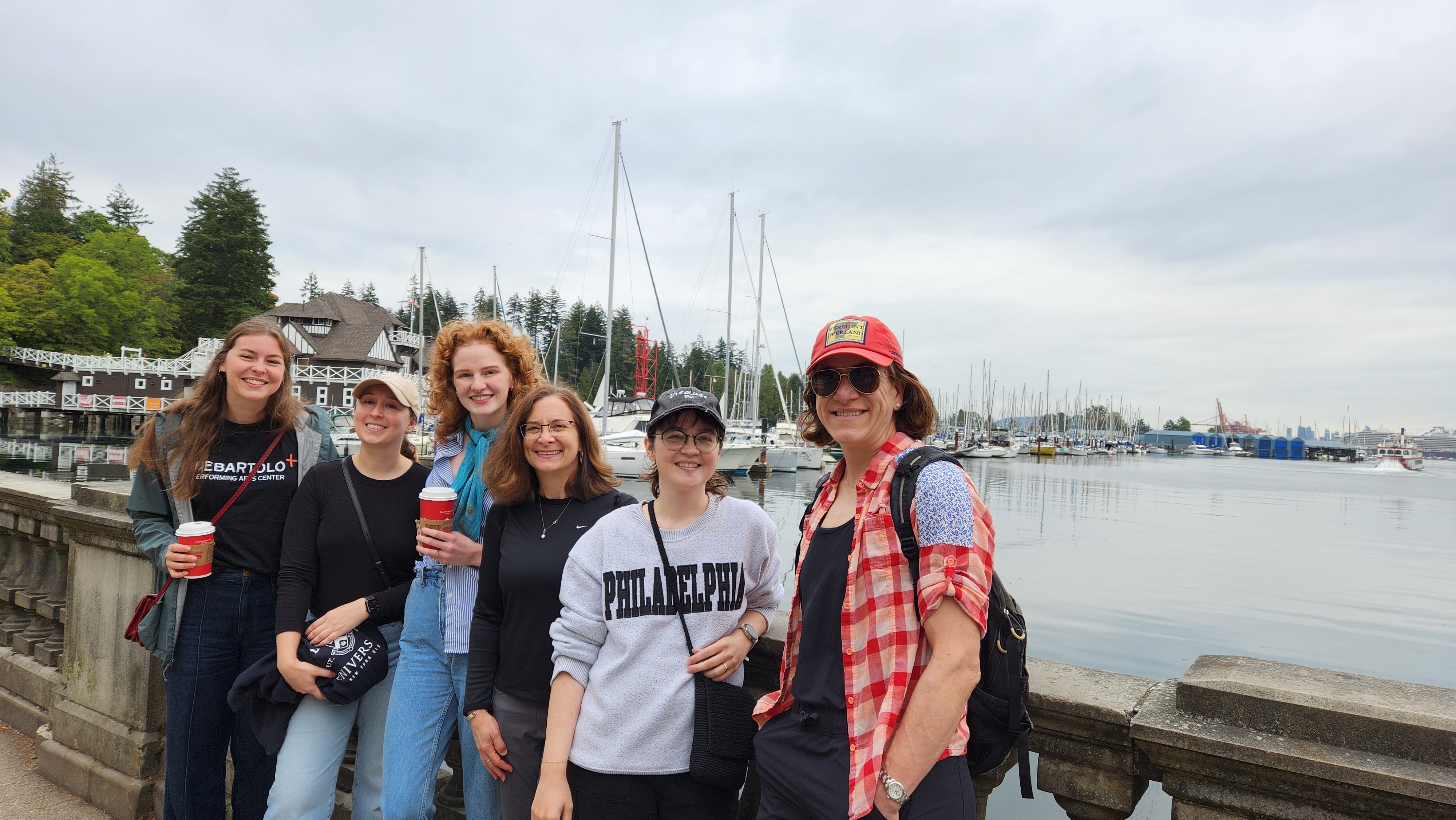Kirwan presented the research she has done with her faculty adviser, Debra Javeline, and fellow Kellogg International Scholar Mary Clare Elliot, titled, “Where Should People Go? Target Destinations in the Study of Climate Change”.
 Set amongst the ship-lined waters of Vancouver, Canada, I had the privilege to present the research I have been doing for the past two years in the Kellogg International Scholars Program at the 2025 American Political Science Association Annual Meeting. Alongside Dr. Debra Javeline and fellow International Scholar Mary Clare Elliot, we presented our project on target climate destinations. This experience allowed me to engage more deeply with current debates in political science and beyond, while also observing how our work contributes to and complements broader scholarly conversations.
Set amongst the ship-lined waters of Vancouver, Canada, I had the privilege to present the research I have been doing for the past two years in the Kellogg International Scholars Program at the 2025 American Political Science Association Annual Meeting. Alongside Dr. Debra Javeline and fellow International Scholar Mary Clare Elliot, we presented our project on target climate destinations. This experience allowed me to engage more deeply with current debates in political science and beyond, while also observing how our work contributes to and complements broader scholarly conversations.
One of the highlights was attending a panel chaired by Dr. Javeline on climate change adaptation in the Global South. Seeing my mentor not only as my research advisor but also as a respected leader in the field underscored the significance of the work we are doing and the impact it can have on global conversations about climate change. It was inspiring to witness the level of collaboration and intellectual exchange among scholars from around the world, all increasingly motivated by the urgency and unjust nature of climate change impacts.
I also attended sessions on the political motivations behind the restitution of cultural objects. As an anthropology major, it was invigorating to see the interdisciplinary nature of the social sciences come to life in a session such as this.
When it finally came time to present, I was nervous to share our findings in front of seasoned academics, even knowing that a conference is a relatively low-stakes environment. However, presenting our own research was the most rewarding part of the experience. Our project addresses the question of: in a world full of climate disasters, unsafe and vulnerable locations, where should people go? Specifically, we are examining if there exists a body of scholarly literature on this topic through a systematic literature review. One of the most helpful parts of presenting before submitting this paper to a journal was the constructive criticism following our presentation. Most of the comments centered around the normative nature of the research, leading my research mentor to respond with a well-founded ideology of the joint role of both scholar and activist that she believes an academic ought to fulfill.
Following the presentation, I had the opportunity to connect with additional scholars on our panel, including Professor Helene Benveniste, who conducts groundbreaking research on the U.S.–Mexico border and climate change migration patterns. Our mentor, Professor Javeline, also introduced us to several of her former Notre Dame graduate students and close colleagues: Angela Chesler (Lehigh University), Shana Scogin (Indiana University Bloomington), and Parrish Bergquist (University of Pennsylvania).
Participating in APSA was a formative step in my academic journey, especially as I discern my next steps following senior year. It reaffirmed my commitment to interdisciplinary scholarship, gave me a broader sense of the role academics can play in society, and connected me with a network of scholars I will continue to learn from and reach out to as I prepare for my senior thesis, graduate studies, and beyond.





